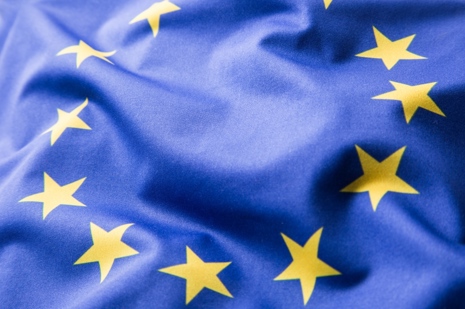
By Willie Walsh, IATA's Director General
Earlier this week we saw the announcement of the proposed new European Commission, with a significant shake-up of the structure, and plenty of new faces. That announcement arrived hot on the heels of a report from Mario Draghi (former Italian PM and President of the European Central Bank) into the future competitiveness of the EU, which had some interesting policy recommendations for the aviation sector.
This new college of Commissioners will face the greatest series of challenges since the formation of the Euro a generation ago. There is no doubt that Europe is falling behind economically. The woes of iconic companies such as Volkswagen show that even standard-bearers of Europe’s grand industrial heritage are struggling to match China’s expansion and a resurgent United States. The emergence of new European champions in areas such as computing and clean tech are notably lacking. The Draghi report is therefore well-positioned to be a guiding light as the Commission rightly focuses focus on competitiveness to restore European dynamism.
A key element of improving competitiveness must be letting business get on with doing business.
As the Draghi report notes, Europeans are regulating at over twice the speed of the US. Between 2019 and 2024 the US enacted 3,400 pieces of legislation and about 2,000 resolutions. Over the same period Europe produced around 13,000 acts. Reducing Europe’s onerous regulatory burden would do much to improve its competitiveness. And with that in mind there will be no shortage of areas for Apostolos Tzitzikostas, the Commissioner-designate for Sustainable Transport and Tourism, to address in the aviation sector.
Reforming the EU 261 consumer rules would be a good place to start. They are a mess, costing EUR5 billion a year and doing nothing to drive improvements in some of the worst-performing corners of the aviation system or improve the flying experience. Plans to reform 261 have been in limbo for years: the Commissioner should look to prioritize this. Other areas in need of attention include airport charges and air navigation service performance. The lack of better regulation of these monopoly sectors is a drag-anchor on European competitiveness.
On decarbonization, Europe’s desire to regulate rather than innovate has been regrettable. It is notable that a new Commissioner for ‘Clean, Just and Competitive Transition’ will be established under Vice-President Teresa Ribera, presumably to ensure that actions by Climate Commissioner Hoekstra and the various trade and economic Commissioners are working in concert to create the “competitive, decarbonized and circular economy” desired by Commission President Ursula von der Leyen. The tools for aviation to achieve a just transition to net zero CO2 by 2050 exist – but it needs the right mix of investment and incentives to bring them forward as quickly and efficiently as possible.
Some of these factors were acknowledged in Draghi’s report. The opening sentence of the chapter on transport states that “well-functioning transport networks and services and a prosperous transport industry are crucial to the competitiveness of the entire EU economy.” I could not agree more. Moreover, the phrase “transport enables the prosperity of other branches of the economy” is a little recognized truth that is music to our ears. Additionally, Draghi usefully highlights the failure to optimize airport and airspace capacity, especially the fragmentation due to “quasi monopolistic state owned ANSPs”. The report even cites the cost of air traffic management (ATM) fragmentation—EUR6 billion and 11.6 million tonnes of excess CO2 emissions in 2019 alone—and echoes industry calls to bring EU ATM up to date with the Single European Sky.
But it is on the issue of decarbonization that Draghi has the clearest policy offers for air transport. The report is clear that the EU must adopt “a pragmatic approach to decarbonization to mitigate potential trade-offs”. It notes that the cost of decarbonizing air transport is around EUR61 billion per year. Draghi points out that 40% of SAF investment is located in the US and calls for the EU to develop the supply chain for alternative fuels. He suggests ETS revenues should be hypothecated to help transport decarbonize and grants and contracts for difference should be deployed to de-risk investments in alternative fuels. These are precisely the sort of incentive-based policies airlines have for years been advocating. Moreover, we would argue his analysis of the price gap between SAF and conventional jet fuel highlights the importance of implementing a book and claim system to keep the market as efficient as possible and ensure competitive costs for SAF.
Draghi has captured an agenda for aviation which, if followed, will improve Europe’s competitiveness. Let’s hope that Draghi’s understanding of air transport’s need and his policy prescriptions for decarbonization are reflected at all levels in the EU. The airline industry has long seen a direct line between a ‘well-functioning and prosperous’ transport sector and a stronger, more competitive Europe. A report, however, achieves nothing without actions to follow. Achieving Draghi’s vision for aviation will require a policy approach that maximises flexibility, minimizes infrastructure and energy costs, alleviates the regulatory burden, and provides for capacity expansion. The Commission’s work must begin now.